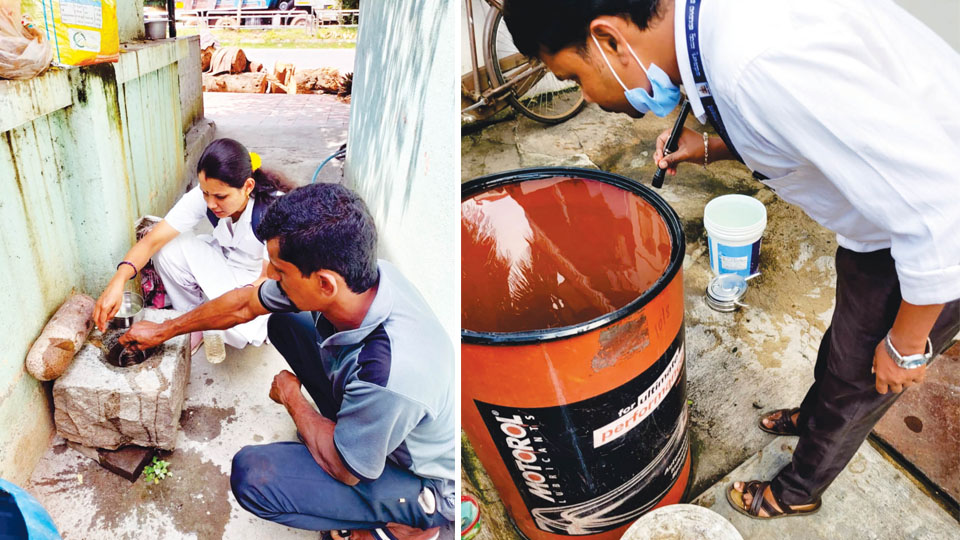Sir,
As dengue fever cases are on the rise, I want to remind citizens about the dangers of this vector-borne disease lurking in and around our domestic and peridomestic areas.
While it is the primary responsibility of Public Health Department to study the epidemiology of the disease outbreak, make efforts to contain mosquito breeding and facilitate medical aid, the role of every individual in the community is equally important.
In this regard, ‘source reduction’ is the most crucial means of controlling Aedes aegypti mosquito breeding by eliminating unwanted water stagnations/collections around our premises. Community participation is significant in eliminating favoured larval sources such as water collected in plates below ornamental plant pots, old tyres, empty tar tins left in the open, etc.
Additionally, look for abandoned utensils, open water storage, tender coconut shells, and water stagnated for RCC curing purposes. Any source such as air coolers or refrigerators with a little water collected for about a week can facilitate the mosquito life-cycle. Therefore, continuous surveillance for source reduction is mandatory until the transmission of the dengue virus (DENV) ceases.
Another important precaution is to prevent the transmission from infected persons. DENV-positive individuals will be infected for a week. If an Aedes mosquito takes a blood meal from an infected person, it becomes capable of transmitting the disease to a healthy person in the next blood-feeding cycle after about 3-4 days.
Therefore, once a person is found positive, they should be in a mosquito-proof environment as much as possible, especially during the day, as these vectors are day-biters. It is also beneficial for the patient, as sequential infection with another serotype of the virus can cause serious consequences.
There are four serotypes of the DEN virus reported (DEN 1, DEN 2, DEN 3 and DEN 4). It is advisable to take personal precautions to avoid day-biting Aedes mosquitoes and keep premises clean from larval breeding water collections. This will benefit the entire community.
— Dr. V.A. Vijayan, University of Mysore (Retd)., Mysuru, 6.7.2024
You can also mail us your views, opinions, and stories to [email protected]








Recent Comments